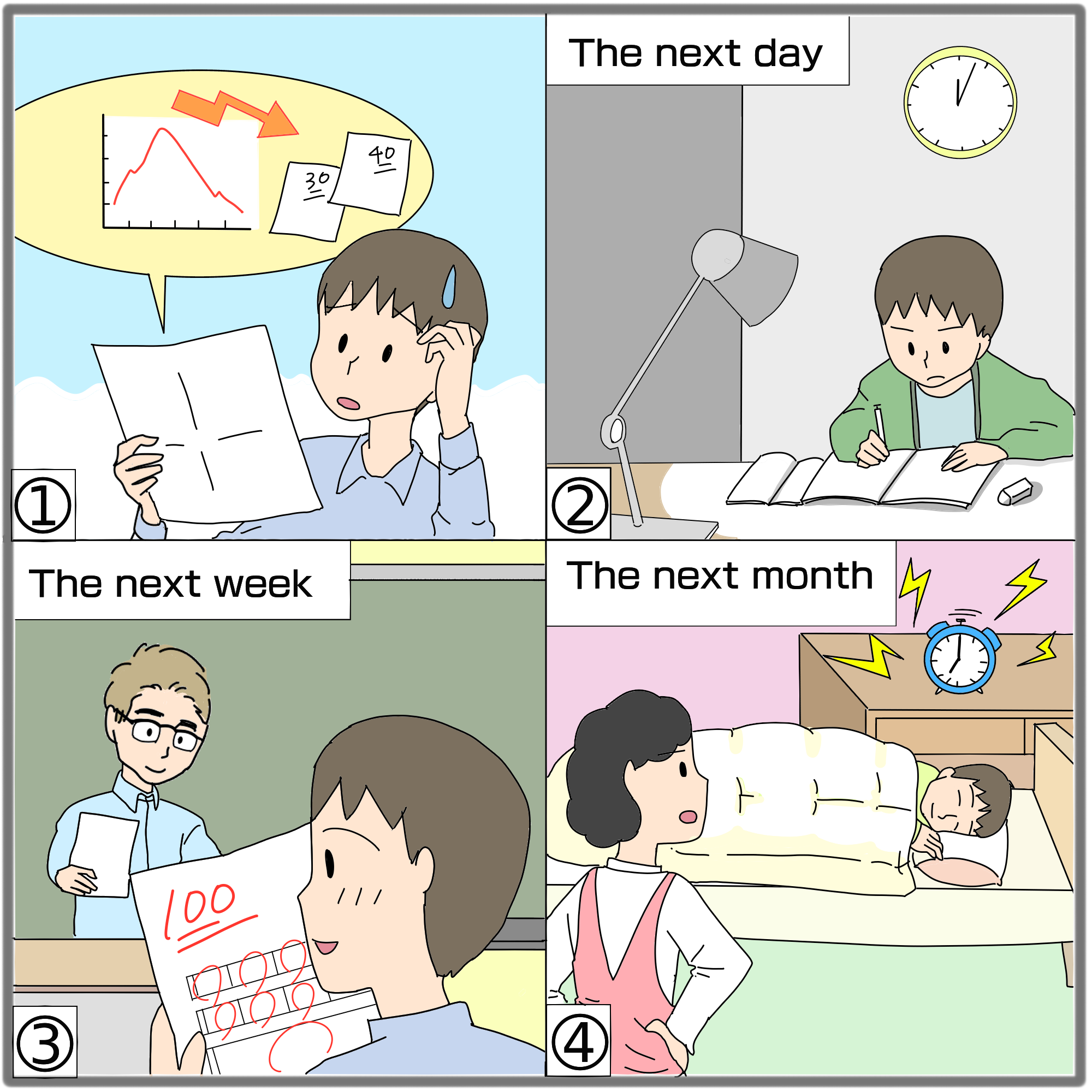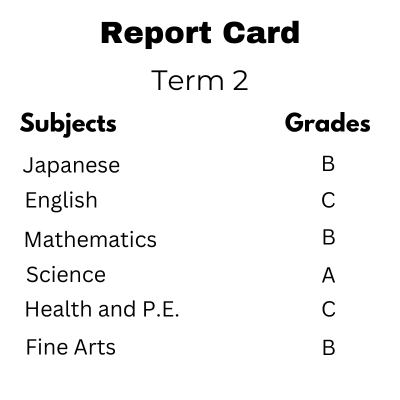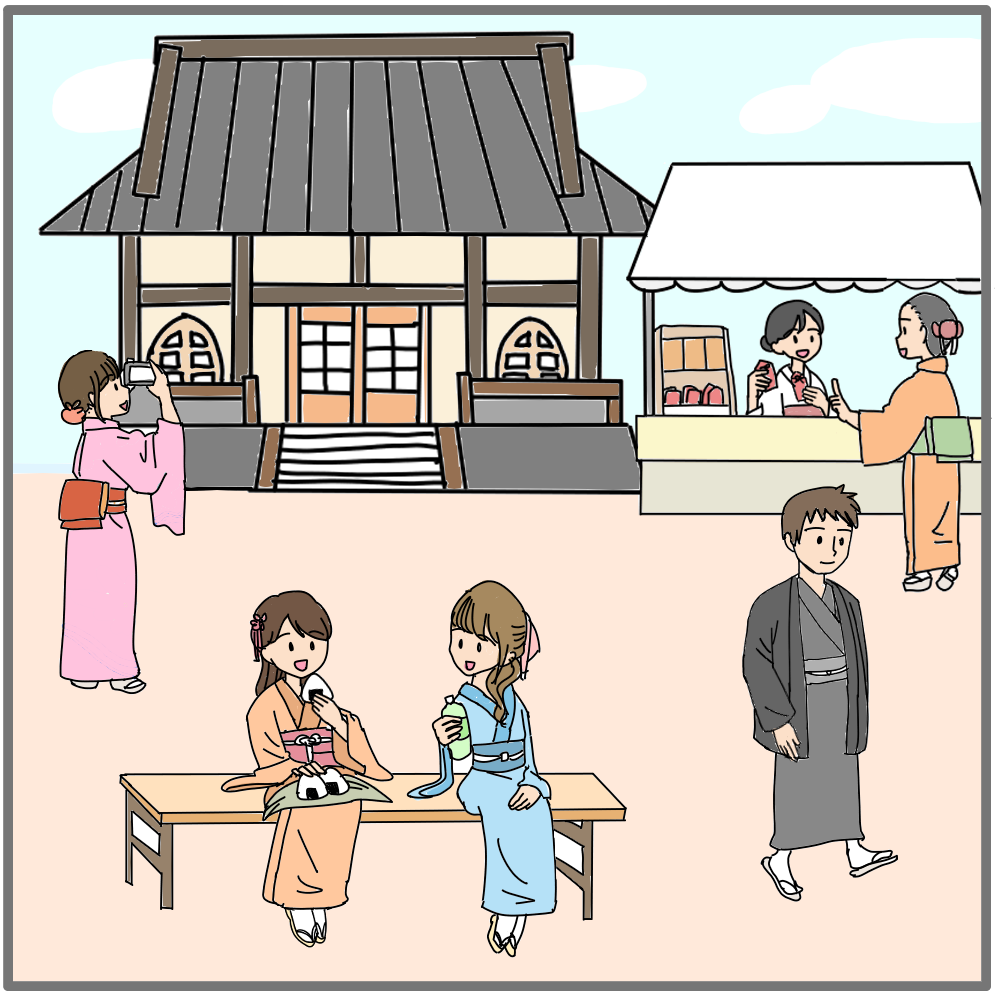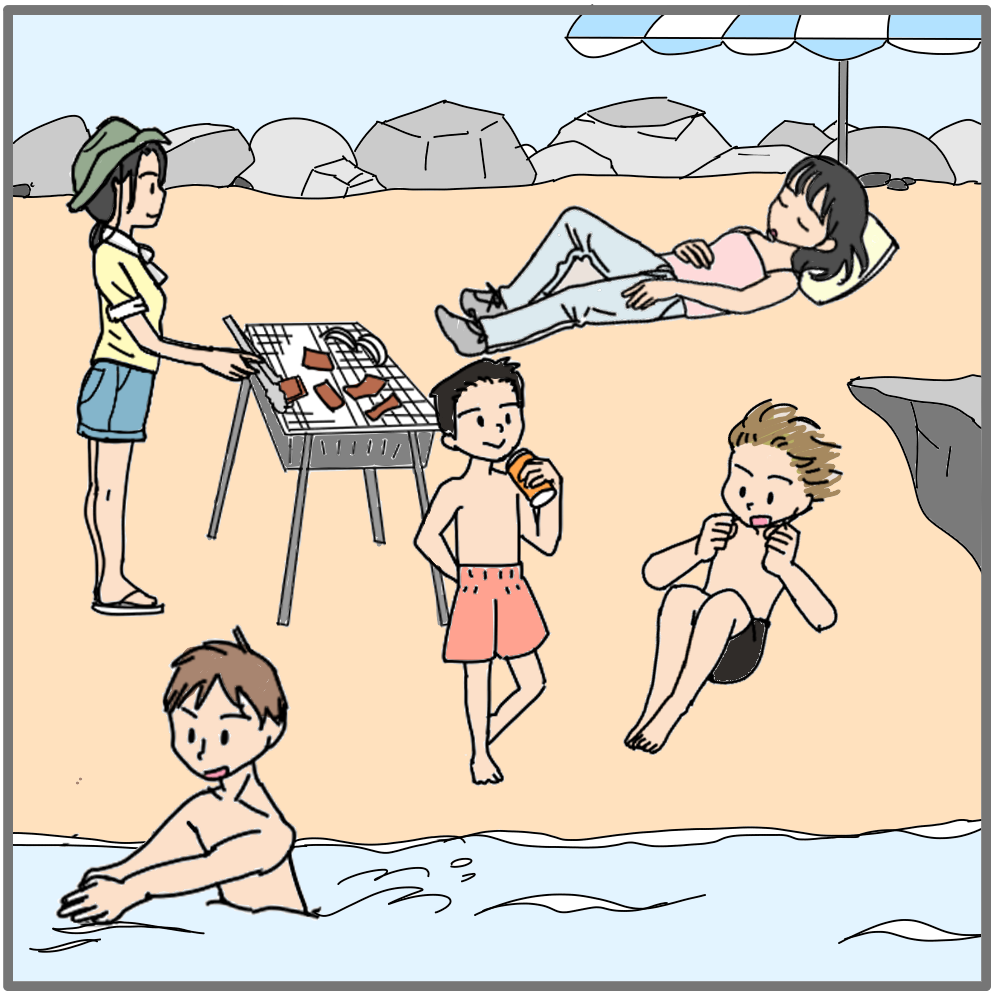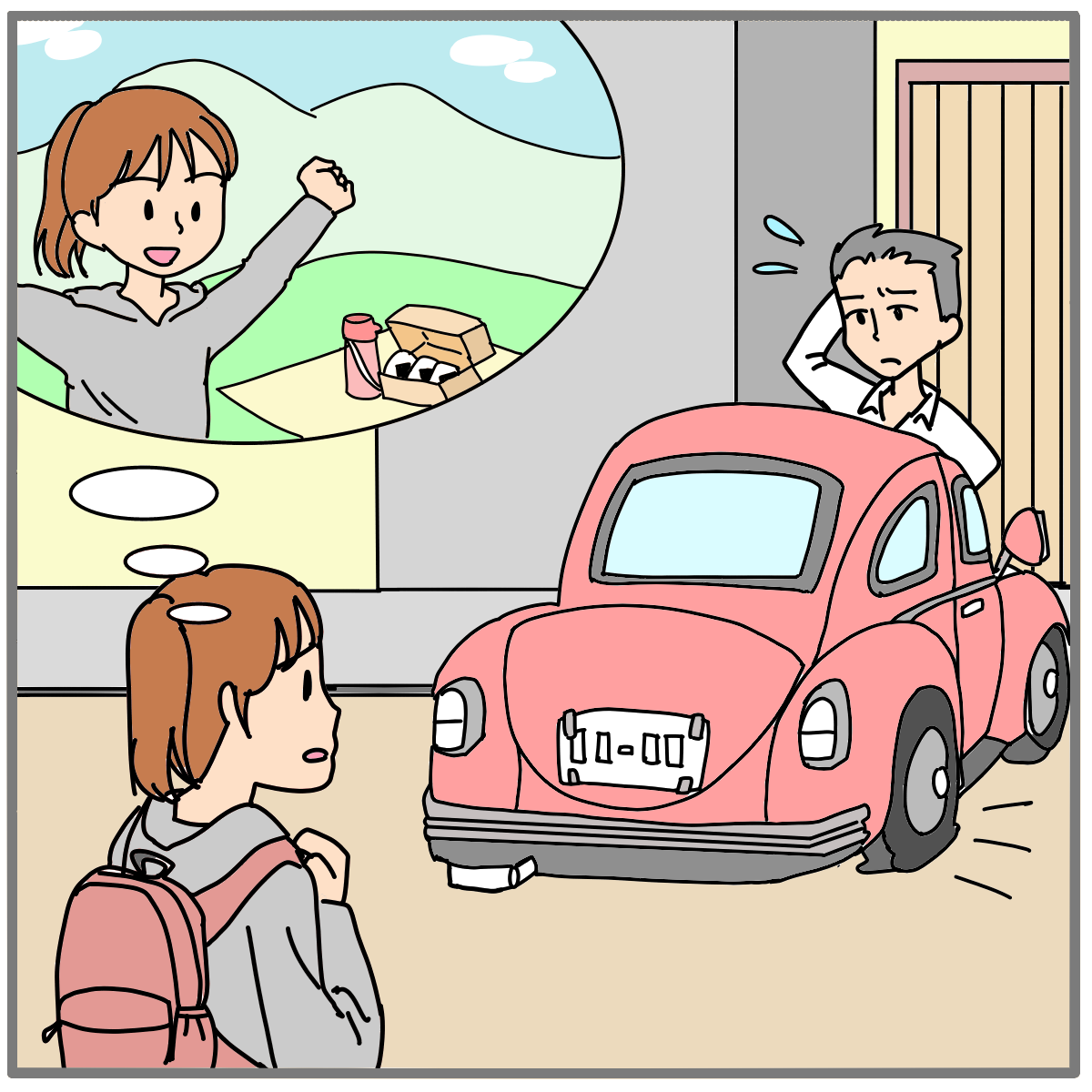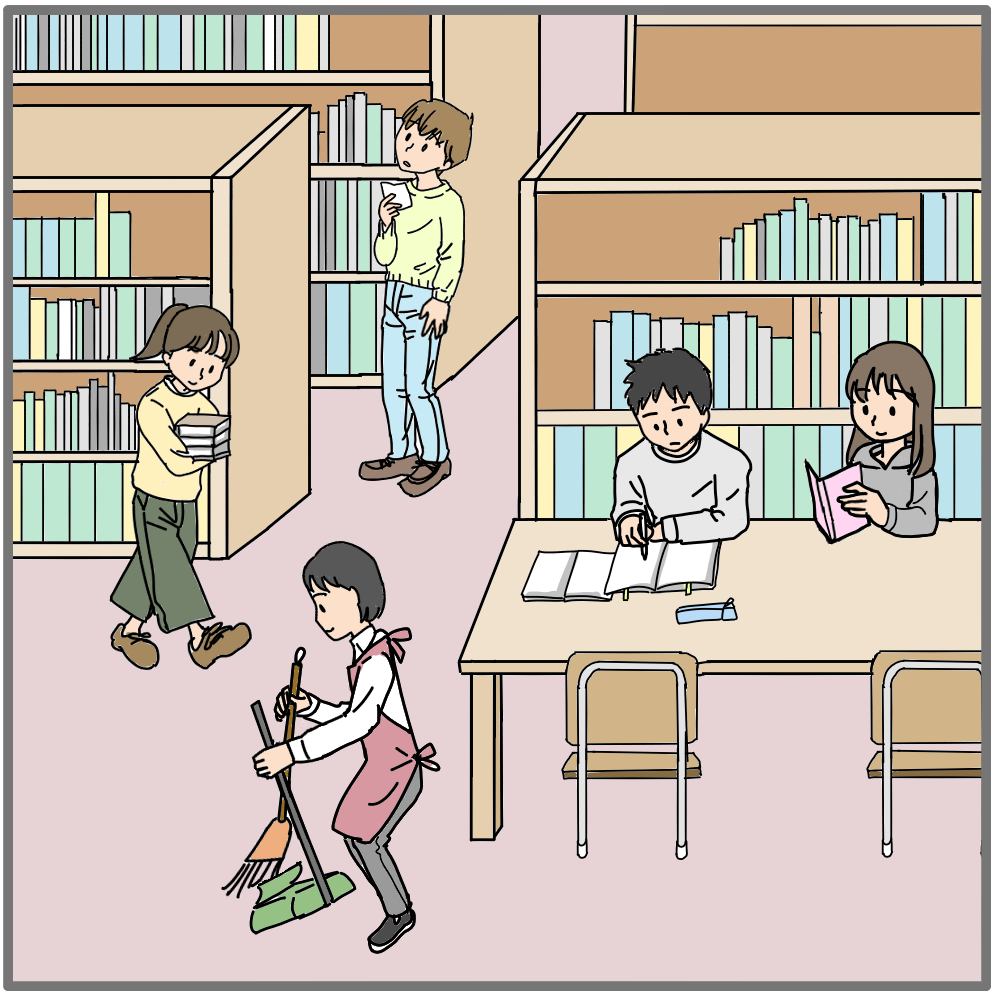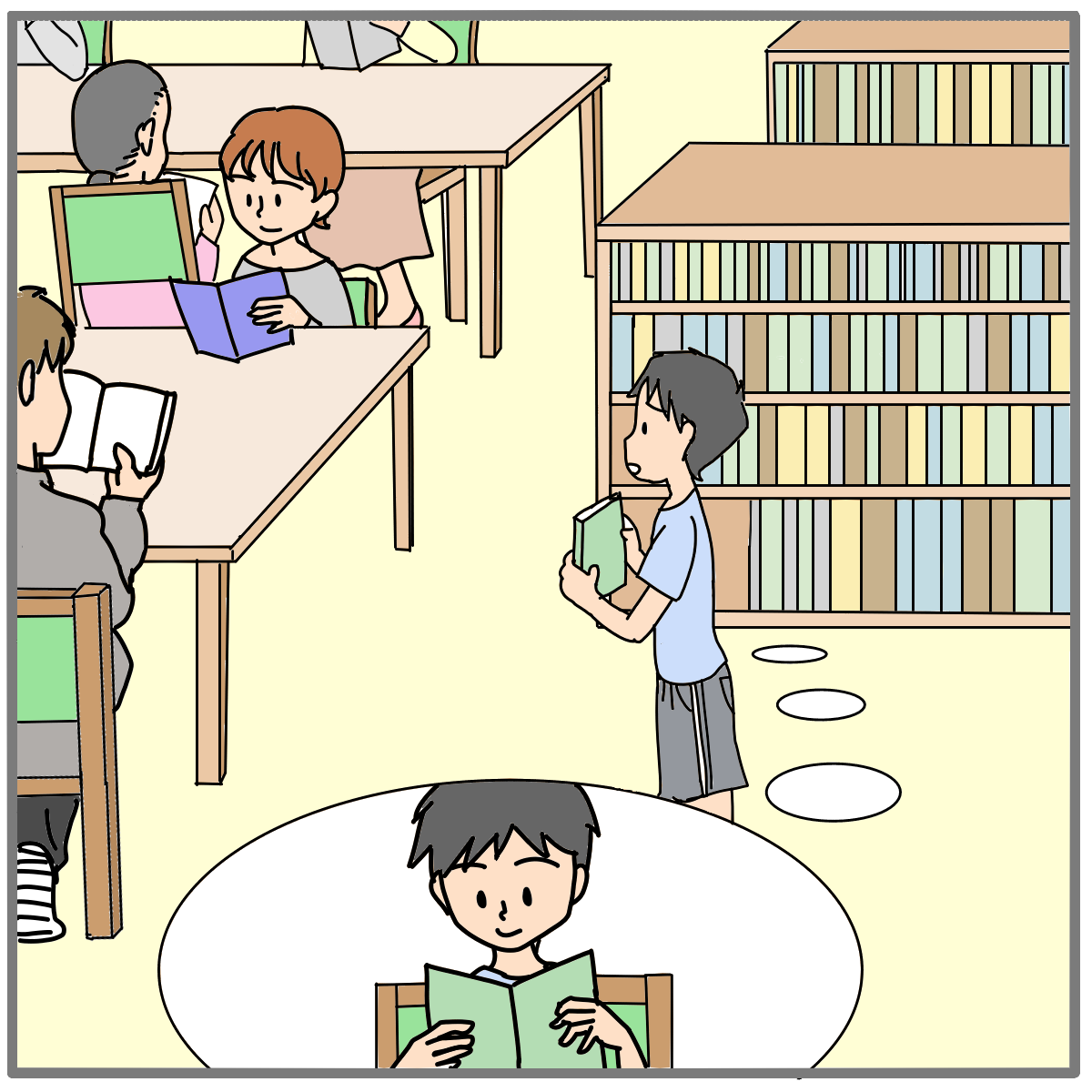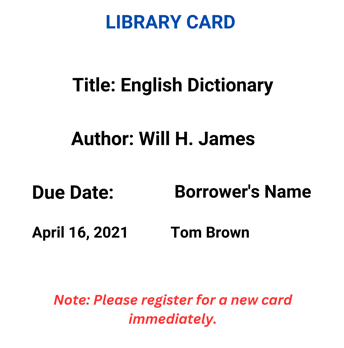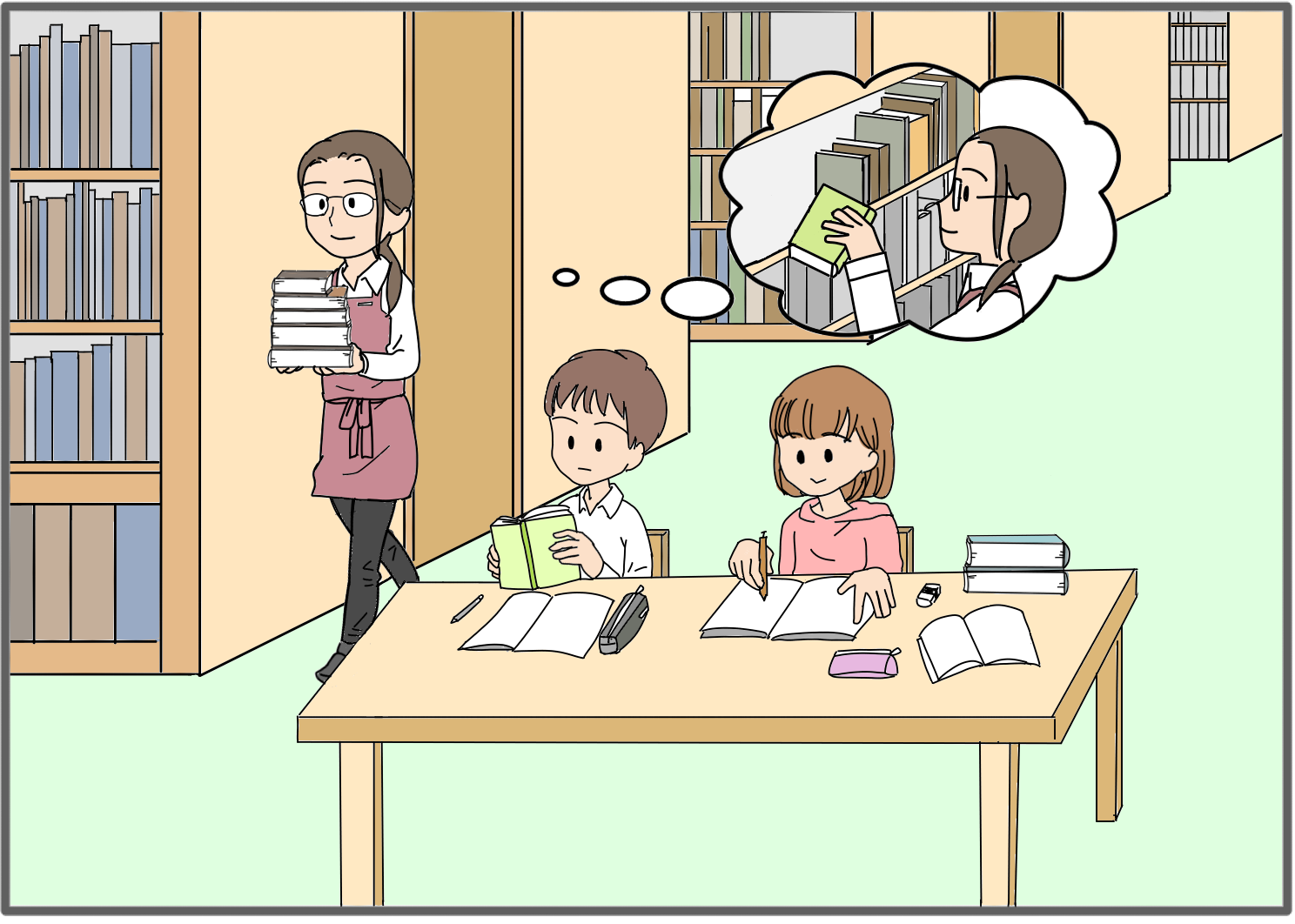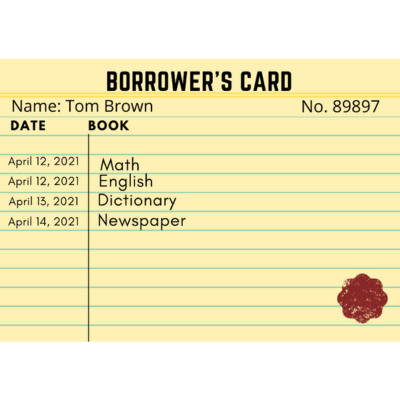PART A_1
Let’s learn new vocabulary. Listen and repeat these words with your tutor.
PART A_2
| 1. offend 怒らせる,感情をそこなう | |
| I’m sorry if I offended your feelings. | |
| 2. refrain 控える | |
| Please refrain from staring at me like that. It makes me feel uncomfortable. | |
| 3. gather 集める | |
| We have to gather all the data we can to fully grasp this study. | |
| 4. wrap one’s head around something (難しい事や複雑な内容を)理解する | |
| Please explain it further as I cannot wrap my head around it. | |
| 5. call it a night その夜は仕事(など)を終わりにする | |
| I do not think we can finish this today. Let’s call it a night. | |
PART A_3
Let’s make sentences using the vocabulary we’ve just learned.
PART A_4
| 1. offend | |
| Answer: | |
| 2.refrain | |
| Answer: | |
| 3.gather | |
| Answer: | |
| 4.wrap one’s head around something | |
| Answer: | |
| 5.call it a night | |
| Answer: | |
PART B_1
Let’s read the dialogue. I will play Ron and you will play Emma. Then, we’ll switch roles.
PART B_2

Hi, Emma. Were you able to gather some data for our research about criminality?
|
|
Yes, I was. You were right, squatters in the slum area really have a lot to say about the topic.
|

Okay, that is good. However, you should refrain from using words such as “squatter” and “slum area” in referring to them and their place.
|
|
Why is that so?
|

The terms which you had just used are now considered politically incorrect.
|
|
What do you mean by political correctness? I just cannot seem to wrap my head around it.
|

Based on my understanding, it is a language that is used to give the least amount of offense, especially when describing groups of people.
|
|
Why is it important for us to be politically correct?
|

We have to be politically correct to give little to no offense to the people we are addressing.
|
|
What is the politically correct term for squatters and slum areas then?
|

The politically correct term for “squatters” is “informal settlers,” while for the “slum area,” it should be an “economically deprived area.” With this, we will be able to avoid offending the feelings of these people.
|
|
That helped me a lot, Ron. Please tell me more about it next time.
|

Sure, Emma. For now, let’s call it a night.
|
PART C_1
Please summarize the conversation using your own words and expressions.
PART C_2
PART D_1
Fill in the blanks and complete the conversation.
PART D_2
| 1. | A: Why did you walk out of the room? B: I was _____________ with the way she talked about my proposal. |
| 2. | A: How do you think can we save more money? B: We should really ___________ from buying unnecessary stuff. |
| 3. | A: How can we answer these questions? B: We have to ___________ as many reading materials as we can. |
| 4. | A: How was the progress in your part of the research? B: I am trying to re-read the materials as I can’t seem to ____________ some topics. |
| 5. | A: We still have a lot on our agenda, but we have a little time left. B: Let’s just __________ . We will continue tomorrow. |
PART E_1
Let’s do a roleplay. Talk with me according to the situation below, using the expressions you just learned.
PART E_2
You noticed that your younger sister still keeps on using politically incorrect words. Pretend that your tutor is your sister and explain to her the importance of using the politically correct language.
PART E_3
REVIEW AND FEEDBACK
Now, let us review the things that you learned in this lesson.
ではこのレッスンで学んだことを振り返りましょう。
(Please give a short feedback on how your student did in your class.)
| Grammar 文法 |
Pronunciation 発音 | Vocabulary 単語 |
Comprehension 理解 |
|
|---|---|---|---|---|
 GOOD GOOD |
文法の誤りはほとんどなく、完全な文章で話すことができる | ほとんどの単語をはっきりと正しく発音することができる | 習った表現を適切に使うことができる | 文章を理解し、質問に正しく答えることができる |
 FAIR |
文法の誤りはあるが、完全な文章で話すことができる | 発音の練習が必要な言葉がいくつかある | たまにミスはあるが、習った表現を適切に使うことができる | 文章を完全に理解するのは難しく、質問に正しく答えられないときもある |
 POOR |
文章で話すのは難しく、単語だけで話すことができる | 発音の練習が必要である | 習った単語と表現を少しだけ使うことができる | 文章を理解するのは難しく、質問に答えるのは難しい |



